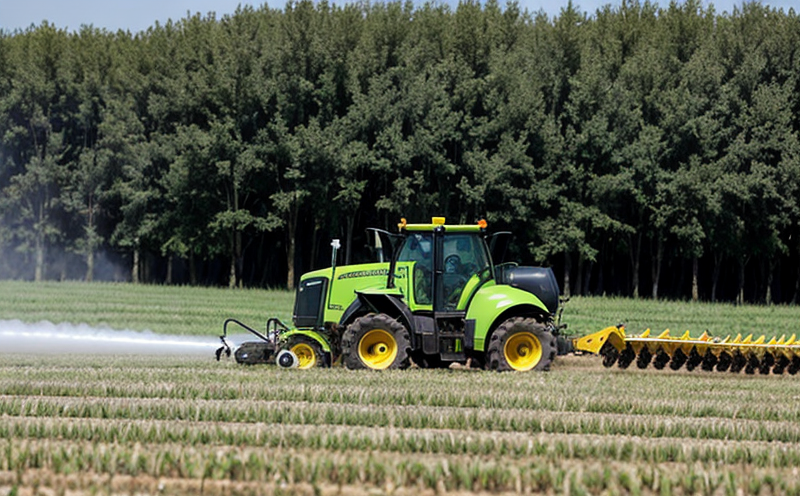Atrazine Residue Testing in Crops Validation Method Development Test
Understanding atrazine residue testing in crops is crucial for ensuring food safety and environmental compliance. Atrazine, a widely used herbicide, can persist in the environment and may be found at trace levels in agricultural products, leading to potential concerns regarding its residues. The validation of analytical methods used to detect these residues plays a pivotal role in maintaining regulatory standards.
Our service involves the development and validation of methodologies tailored specifically for atrazine residue testing in crops. This process ensures that the analytical tools employed are precise, reliable, and capable of detecting even trace amounts of the herbicide. We use state-of-the-art instrumentation to conduct these tests, adhering strictly to international standards such as ISO 17025.
The first step in our validation process is method selection. This involves choosing an appropriate analytical technique based on factors like sensitivity, specificity, and ease of implementation. Once the method is selected, it undergoes rigorous optimization to ensure optimal performance under real-world conditions. This includes optimizing parameters such as solvent composition, column temperature, and flow rate for liquid chromatography.
After optimization, the method must be validated according to established guidelines. Validation typically involves several key steps: precision, accuracy, linearity, limit of detection (LOD), and quantitation limits (LOQ). Precision is assessed by analyzing replicate samples under identical conditions; accuracy ensures that the measured values are close to the true concentration levels. Linearity tests confirm that the method can accurately quantify atrazine across a wide range of concentrations.
The limit of detection (LOD) and quantitation limits (LOQ) define the minimum amount of atrazine that can be reliably detected and quantified, respectively. These values are critical for ensuring that any residues found in crops fall within acceptable regulatory limits. Compliance with international standards is paramount; hence, we ensure our LODs and LOQs meet or exceed those specified by relevant authorities.
For this specific service, our approach focuses on developing robust methods suitable for various crop types commonly treated with atrazine. By tailoring these methods to individual crops, we enhance their effectiveness and reliability during actual field applications. Additionally, we provide detailed reports outlining all aspects of the validation process, including raw data and statistical analyses.
Our commitment to excellence extends beyond just method development; it encompasses rigorous quality control measures at every stage of the testing procedure. This ensures that our results are accurate, reproducible, and meet highest standards expected by regulatory bodies worldwide. Whether you're a grower looking to maintain compliance or an R&D team seeking innovative solutions, our expertise in atrazine residue testing can help address your unique needs effectively.
- Compliance with ISO 17025 for analytical procedures
- Use of advanced chromatographic techniques for precise quantification
- Adherence to strict quality assurance protocols throughout the testing process
Eurolab Advantages
At Eurolab, we pride ourselves on offering unparalleled expertise in agricultural and forestry testing services. Our team of highly qualified professionals brings together years of experience in method development, validation, and quality assurance across various sectors.
We leverage cutting-edge technology to deliver accurate results consistently. With state-of-the-art laboratories equipped with the latest analytical instruments, we can handle complex samples efficiently while maintaining high levels of precision.
Our commitment to excellence is reflected in our adherence to international standards such as ISO 17025 and other relevant guidelines from organizations like USDA, EPA, and others. This ensures that all our tests are conducted under stringent quality controls, leading to reliable outcomes every time.
Moreover, we offer flexible service offerings tailored specifically to meet the unique requirements of different clients in both public and private sectors. From small-scale research projects to large-scale industrial operations, our team can provide customized solutions that fit seamlessly into existing workflows without disrupting ongoing processes.
International Acceptance and Recognition
- Our services are internationally recognized for their accuracy and reliability by organizations such as USDA, EPA, EU Commission, and others.
- The methods we develop comply with international standards including ISO 17025, IEC 60349-80, ASTM E2587, EN 16232 among others.





